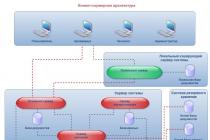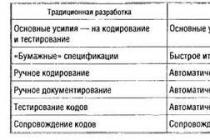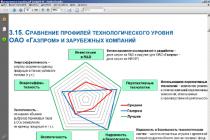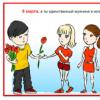As you know, organizations are complex objects, and those, in turn, are parts of an even more complex integrity. Since organized actions are inherently complex, and management decisions are made by people and influence them, when making decisions, it is necessary to take into account a number of various factors, both from the external changing environment and from the organization itself. You can list a number of factors that, to one degree or another, influencing the behavior of individual representatives in the organization, which undoubtedly plays almost the main role in the process of adoption management decisions. I preferred to include such factors as personal assessments of the leader, and the level of risk, and the time of decision-making, and the changing environment, and informational and behavioral restrictions, and, finally, the negative consequences and interdependence of decisions.
Personal assessments of the leader. As a rule, the personal characteristics and assessments of the leader contain a subjective ranking of importance, quality or good. In relation to decision making, assessments act as a compass, pointing the person in the desired direction when having to choose between alternatives of action.
All managerial decisions, not just those related to issues of social responsibility and ethics, are built on the foundation of someone's value system. Each person has his own value system, which determines the actions and influences the decisions made.
Research confirms that value orientations affect the way decisions are made. Cultural differences are important.
In addition to differences in personal assessments, a typical difficulty in determining the optimal alternatives is the environment in which decisions are made.
Decision making environment. When making management decisions, it is always important to consider risk. Risk in this case refers to the level of certainty with which an outcome can be predicted. In the course of evaluating alternatives and making decisions, the manager must predict possible outcomes in different circumstances or states of nature. These circumstances are classified as conditions of certainty, risk or uncertainty.
Certainty. The decision is made under conditions of certainty, when the leader knows exactly the result of each of the alternative choices. For example, a manager can, at least in the short term, determine exactly what the costs of producing a certain product will be, since rent, cost of materials and work force known or can be calculated with high accuracy.
Under conditions of certainty, relatively few organizational or personal decisions are made.
Risk. Decisions made under risk are those whose outcomes are not certain, but the probability of each outcome is known. Probability is defined as the degree of possibility of a given event and varies from 0 to 1. The sum of the probabilities of all alternatives must be equal to one. Under conditions of certainty, there is only one alternative. The most desirable way of determining probability is objectivity. Probability is objective when it can be determined by mathematical methods or by statistical analysis of accumulated experience.
Management must consider the level of risk as a critical factor. There are several ways in which an organization can obtain relevant information to enable it to objectively calculate risk. When external information is not available, the organization can obtain it in-house through research. Market analysis is so widely used to predict the perception of new products, television shows, movies and politicians that it has become an important field in its own right and has also become an integral part of the activities of almost everyone. large organizations dealing with the general public.
The probability will be determined objectively if enough information is available for the prediction to be statistically reliable. In many cases, the organization does not have sufficient information to make an objective assessment of the likelihood, however, management's experience suggests what is most likely to happen with high certainty. In such a situation, the manager can use judgment about the possibility of accomplishing alternatives with one or another subjective or implied probability.
Uncertainty. The decision is made under conditions of uncertainty, when it is impossible to estimate the likelihood of potential outcomes. This should be the case when the factors to be considered are so new and complex that it is not possible to obtain sufficient relevant information about them. As a result, the likelihood of a particular outcome cannot be predicted with sufficient certainty. Uncertainty is characteristic of some decisions that have to be made in rapidly changing circumstances. highest potential uncertainty has a socio-cultural, political and science-intensive environment.
In practice, very few management decisions have to be made under conditions of complete uncertainty. When faced with uncertainty, a manager can use two main options.
First, try to get additional relevant information and analyze the problem again. This often reduces the novelty and complexity of the problem. The leader combines this additional information and analysis with accumulated experience, judgment, or intuition to give a set of outcomes a subjective or implied credibility.
Second, act exactly on past experience, judgment, or intuition, and make an assumption about the likelihood of events. This is necessary when there is not enough time to collect additional information or the cost of it is too high. Temporary and informational constraints are of paramount importance in making managerial decisions.
Time and changing environment. The passage of time usually causes changes in the situation. Therefore, decisions should be made and implemented as long as the information and assumptions on which decisions are based remain relevant and accurate. Time considerations sometimes force managers to rely on judgment or even intuition when, under normal circumstances, they would prefer rational analysis. You should also take into account the likelihood of a decision ahead of its time.
Conflict. Similar situations are considered in game theory. Of course, in practice this situation occurs quite often. In such cases, they try to minimize it, or use non-formalized methods to make a decision. Estimates obtained as a result of applying formalized methods are only the basis for making a final decision; in this case, additional criteria, including those of an informal nature, may be taken into account. Making an important decision in the context of conflicting parties is different from other situations, as it concerns the entire organization as a whole. Sometimes it is very difficult for a manager to resolve a conflict in favor of one of the parties. In such cases, for the most optimal resolution of the conflict, a compromise can be used that would please both parties, but on the terms of mutual concessions.
information restrictions. Perhaps the most important thing for a manager in the process of effective management decision-making is the possession of reliable and high-quality information. Information is needed to rationally and expediently solve problems. But sometimes the information needed to make a worthwhile decision is not available or is too expensive. The cost of information should include the time of managers and subordinates spent on collecting it, as well as actual costs, for example, those associated with market analysis, payment for machine time, using the services of external consultants, etc. Therefore, the manager must decide whether the benefit from additional information is significant, how important the decision itself is, whether it involves a significant share of the organization's resources or a small amount of money. It can be argued that due to the decent provision of the manager-manager with information resources, and the organization with financial and human resources, a synergistic effect is achieved when making a rational managerial decision. Now, let's consider the possible alternatives that the manager may face when evaluating the costs and benefits of additional information.
The adoption of SD is the art of finding an effective compromise: a gain in one almost always comes at the expense of another. The decision to produce quality products entails an increase in costs, some consumers are satisfied, while others prefer cheaper analogues. The problem of adopting SD is to weigh the disadvantages and advantages in order to obtain the greatest overall gain. The manager has to make a subjective judgment about which negative side effects allowed, provided that the desired result is achieved.
BUT not all negative consequences can be acceptable. For example, law violation, ethical standards etc. Major decisions have implications for the entire organization, not just the segment directly affected by the decision. The simplification of technology may allow the firm to employ unskilled workers. At the same time, simplistic work can be so tedious that workers become frustrated, which can be expected to increase absenteeism and turnover, and possibly reduce productivity. Installing an automatic production line can reduce overall costs, but at the same time lead to the layoff of loyal workers.
13.Principles of making managerial decisions.
Principles- the rules that should be followed by the employees of the management apparatus in the process of making and implementing decisions. 1.The principle of consistency – focuses on taking into account significant factors and events in their connection. 2. The principle of standardization – most real management situations can be reduced to a set of standard situations; if the management situation is non-standard, then the possibility of dividing it into standard and non-standard parts is studied; for the non-standard part, a special analysis is needed in order to find a special solution. 3. The principle of timeliness - focuses on choosing the best moment for making a decision, the decision will not give the expected effect if it is premature or late. 4. The principle of optimal awareness – for each level there is an optimal size of the infobase. 5. The principle of automatic implementation of SD – the decision made must be brought to the required level as soon as possible and in an undistorted form and becomes a practical guide to action. 6. The principle of freedom of choice The person making the decision should have many options for the decision. 7. The principle of proportionality of rights and responsibilities - the level of responsibility and competence should correspond to the content and level of duties of the decision maker. 8. The principle of complicity - Active participation in decision-making by those concerned. 9. The principle of creativity – is needed to clarify problems and search for ideas that go beyond the usual framework, in order to question the basic assumptions.
14.UR quality - a set of properties that ensure the successful implementation and receipt of the planned outcome of the decision. The main saints of UR include: 1. validity- taking into account all the factors associated with the development of SD, while the quality, completeness, timeliness and reliability of information access are of great importance, 2. efficiency- obligatory comparison of the expected and achieved economic and social effect with the costs of its development and implementation. Is the main prerequisite for the survival and development of enterprises in the main conditions, 3. consistency– verification of compliance with legal and regulatory documents of all levels of management, as well as preliminary coordination with previously adopted decisions, 4. concreteness- indication of specific executors, place and deadline for the execution of decisions. The quality of SD determines the final result and the effective implementation of the tasks set.
15. Factors affecting the quality of management decisions. The following factors depend on the adoption of SD: 1) the external and internal environment of the organization, 2) information organization, 3) the interdependence of decisions and negative consequences, 4) behavioral restrictions, 5) personal assessments of the manager, 6) the level of risk, 7) structuring information when making a decision .
(1) The main characteristics of the external environment are complexity, the degree of certainty.
The activities of the organization are influenced to varying degrees by factors: 1. Economic - GDP, the structure of the country's economy and the pace of its development, inflation, unemployment, etc. 2. Organizational structures used, types of economic relations, 3. Technical - available technologies and materials, 4. Social - demographic characteristics, lifestyle, cultural values, social status, etc. 5. Legal legislative acts, state support, state taxes, 6. Political - determine the general situation in the country, the level of its stability and predictability. 7. Natural - access to natural resources, ecology, biosphere, man-made disasters. 8.Cultural-historical - the general state of culture, attitude to historical values, 9.International environment, etc.
Ministry of EDUCATION and SCIENCE of the Russian Federation
federal education agency
federal state educational institution
higher vocational education
National Research University
Kazan State Technological University
Faculty of Management, Economics and Law
Department of Economics
Allow for protection
_____________"___"__________20__ Completed:
__________________
checked:
__________________
__________________
Kazan 2011
Introduction…………………………………………………………………………...3
I Quality of managerial decisions. Consequences of managerial decisions: assessment and foresight.
1.1 Making effective decisions………………………………………..7
1.2 The nature of the decision-making process………………………………….11
1.3 Indicators of the quality and effectiveness of management decisions…….15
1.4 Classification of management decisions………………………………… 17
IIConsequences of managerial decisions: assessment and foresight.
2.1 Factors influencing the process of making a managerial decision……………………………………………………………………………..23
2.2 general characteristics Sanatorium "Chernomorye" Review of the consumer of the services of the Sanatorium "Chernomorye" ………………………………………………….31
Conclusion………………………………………………………………………….39
List of used literature…………………………………………..40
Introduction
The relevance of the study of this course work lies in the fact that in the process of managing the production system, situations constantly arise when managers of various levels (from master to minister) are faced with the need to choose any one of several options actions. The development and adoption of a decision is a key procedure in the activities of a manager, which determines the entire further course of the management process, in particular the final result of management activities.
The process of making certain managerial decisions in modern management occupies its exclusive niche. Among the many problems of management disciplines, and management in particular, the most important, oddly enough, are the development, adoption and implementation of a management decision, which is the main tool for managing influence. A decision is always a choice of an alternative. Although there are often many alternatives, we make almost all everyday decisions without systematic thought. As for other decisions, such as where to go to live after graduation, or what lifestyle would satisfy us, we make them after deliberation lasting days, months, years. Sometimes, due to unconscious psychological factors, we pay a disproportionate amount of attention to certain decisions. However, in management, decision-making is a more systematized process than in private life. The stakes are often much higher. The manager chooses the course of action not only for himself, but also for the organization and other employees. More importantly, managerial decisions can greatly influence the behavior and lives of many people.
The decision refers to the number of creative operations in the technology of managerial work. On the one hand, in terms of content, this is a logical and cogitative activity performed mainly by management personnel. On the other hand, the decision is an emotional-psychological act. Like no other type of managerial work, the decision is due to the psycho-physiological traits of the leader's personality. Finally, the decision acts as a management procedure, therefore, it must be carefully organized, regulated with the help of legal norms.
The problem of choice is not purely academic. It has a very serious applied value, which inevitably increases as the complexity of economic situations and management tasks that need to be addressed. This is also evidenced by the increasing scale of losses as a result of even small errors made in the decision.
Effective decision-making is necessary for the performance of managerial functions. Therefore, the decision-making process is the central point of management theory. Management science seeks to improve the performance of organizations by increasing management's ability to make informed, objective decisions in situations of extreme complexity through the use of models and quantitative methods.
Decision-making technology should be understood as the composition and sequence of procedures leading to solving the organization's problems, in combination with methods for developing and optimizing alternatives.
For a leader, decision making is not an end in itself. The main thing that should concern the manager is not the choice of the alternative itself, but the resolution of a certain managerial problem. To solve a problem, very often, not a single solution is required, but a certain sequence of solutions and, most importantly, their implementation. Therefore, a decision is not a one-time act, but the result of a process that develops over time and has a certain structure. Any managerial decision in management is a connecting element, since its adoption is an integral part of any managerial function. So to get the gist of it complex process, it is necessary to consider its stages, or phases, step by step. For a detailed analysis of the process of making a managerial decision, I believe that it would be more expedient to first get acquainted with their types, and then with the model and methods for its adoption and further implementation.
Subject of study– analysis of the consequences of managerial decisions.
object coursework research is Non-State Institution Health Sanatorium "Chernomorye".
The purpose of the study is the importance of making managerial decisions and analyzing their consequences.
To achieve this goal, the following tasks:
Reveal the features of modeling, types of models used and decision-making methods;
Investigate the factors influencing the decision-making process, as well as the main requirements for the quality of managerial decisions;
Investigate the nature and types of responsibility of managers for their decisions;
To carry out an analysis of the consequences of managerial decisions on the example of the NHI Sanatorium "Chernomorye";
Develop a set of measures and form proposals for making management decisions.
The information basis for writing the term paper was the work of such specialists as Smirnov E.A., Fatkhutdinov R.A., Glushchenko V.V., Gerchikova I.N. and others, as well as periodicals: the newspaper "Gudok", the magazine "Parade of Hotels", the scientific and informational magazine "Kurortnye Vedomosti" and reviews of consumers of the services of the NHI Sanatorium "Chernomorye".
Work structure. The work consists of an introduction, two chapters, a conclusion and a list of references.
IThe quality of management decisions. Consequences of managerial decisions: assessment and foresight.(Theoretical part)
1.1 Making effective decisions
Making effective decisions- one of the most important conditions for the effective existence and development of the organization. The importance of the decision-making process was realized by mankind simultaneously with the beginning of its conscious collective activity. Therefore, following the emergence and development of control theory, decision-making theory arose and developed. The modern science of management, and with it the theory of managerial decision-making, arose after the emergence of organizations in the modern sense.
Modern organizations differ from organizations of the old type by the presence of a significantly larger number of large and giant organizations, and in such organizations the role of management decisions is increasing.
Unlike old-style organizations in modern organizations a large number of senior and middle managers. The professional duty of each manager is to make a management decision in accordance with the scope of authority delegated to him. In a modern, effectively functioning organization, the occupation of a leadership position occurs by the right of competence and the order adopted in the organization. The competence of a leader is determined, first of all, by the effectiveness of his decisions and the ability to implement the decision made.
Activity modern organization is distinguished by the presence of a relatively large number of specialists, who are not even managers, who, by virtue of the powers delegated to them in the organization, need to make important decisions for the organization.
Teamwork and rationality, which are based on a professional management decision, have become the core of the organizational culture of a modern company.
The reasons listed above had a significant impact on the emergence of a fundamentally new nature of organization management, on the intensive development of the theory and practice of making managerial decisions. One of the main achievements modern science about management, and above all schools scientific management, headed by Taylor, is that for the first time managerial functions work planning and analysis of the production situation were separated from the work itself.
And this means that the process of making a managerial decision for the first time began to be considered as an independent managerial act.
Severus tensed and closed his eyes for a second. It was enough for Granger to remember that in the summer when they lived together, Snape always did that when he was sick. Hermione squeezed her eyes shut tightly without letting go of his hand and touched herself in her hospital bed. Everything around suddenly disappeared. The girl was carried somewhere along a dark tunnel. Around a thousand voices, merging into an indistinguishable rumble. I wanted to close my ears and scream, but it was impossible to move or make a single sound. The only thing that kept me from getting lost in this crazy carousel was the hand of the potion master, still tightly squeezing the girl's hand. He was there and felt, too, that she. After a couple of seconds, which seemed to both of them longer than eternity, the guys simultaneously came to their senses.
Hermione! Severus! Miss Granger! Mr Evans! - joyfully excited voices were heard from all sides.
The potion master was only enough to send a faint smile to his wide brown eyes, in which a whole range of emotions was read. Then Snape fell into darkness.
Harry, you need to rest! - once again said Granger, trying to drive the restless Gryffindor.
She's been in the hospital wing for a week now, a week to be exact, since she woke up. Severus sleeps on the bed next to him, not waking up. And Harry spends all his free time here. As soon as the bell rings, announcing the end of classes, the guy rushes to the hospital wing. Caring elves, knowing that the Gryffindor does not attend breakfast, lunch or dinner, bring him food here. Under the reproachful gaze of his girlfriend, sitting on a free bunk, Potter does his homework, while chewing something and sharing the news. Ten minutes before lights out, he leaves for the Gryffindor tower, and early in the morning, barely putting himself in order, again rushes to Madam Pomfrey's abode. The nurse shakes her head disapprovingly, but, knowing full well that this restless boy cannot be driven away, she is silent, like McGonagall.
I'm not tired, Germ! Harry looked up from his Transfiguration textbook for a second to give his friend a smile and a sad look at Snape's bed.
Let me at least help, - Granger sighed doomedly, trying not to turn in Severus's direction, so as not to betray her anxiety. Potter doesn't need to know. Enough of the fact that she peered all night with bated breath at such beloved and such frighteningly pale features of the potions master
Yes, I almost ... it just doesn't fit here ... - the Gryffindor ran his hand through his hair and, wrinkling his face funny, showed the right place on the long scroll.
Fascinated by the problem, the guys did not notice Davis entering the ward, and for a couple of minutes, with a sad smile, he watched the two heads bend over the parchment before whispering:
What are we doing?
The Gryffindors, predictably, jumped up on the bed.
Marty, you scared us so much! Hermione whispered back, moving over to have the professor sit next to him. - We're trying to do our homework. Well, you did back!
And what do you want? Last year, - Davis shrugged his shoulders and, quickly looking around, like a schoolboy who had planned some dirty trick, said: - Well, what do you have there?
Harry and Hermione looked at each other, smiling.
Can you go for a walk? asked Madam Pomfrey, who appeared in the ward a minute after Harry finished his Potions essay. "Miss Granger would benefit from fresh air, and you too, Mr. Potter."
I'll sit here a little while, and you go.
It was already quite cool, so there were almost no students near the lake. Sitting down on a bench and tucking a yellow oak leaf under her toe, Granger finally decided to ask the questions that had tormented her all along:
Marty, what happened then... and what about... the Weasleys? - Catching Davis's surprised, confused look, the Gryffindor explained: - I didn't want to ask Harry.
We don't know much... When you were distracted by Ginny, Zabini came to his senses... He, as it turned out, wielded wandless magic... There's some kind of ancient ancestral curse... In general, you were supposed to forever fall into to someone or something like that... At the same time, Zabini gave you and Malfoy a hard time... When we got to the manor, almost all the Slytherins came to their senses and wanted to run away, but it didn't work out. By the way, Evans is a great battle mage, he almost tore them on the spot when he saw you. They were immediately taken to Azkaban. A couple of days later they were found dead in their cells. The official version - could not stand the next failure and committed suicide.
You and Malfoy were taken to Hogwarts. Draco quickly came to his senses, but you... They called a council, the best healers came... Here your Severus helped again - in all of England there are only three people who know how to brew Life of Death. And he did, but it's not so much the potion that matters as the binder - the person you would come back for. You only missed Harry and Evans.
What about Ginny and Ron? Granger whispered, trying to digest the information.
The Weasleys went to Romania to live with Charlie. There is a small school not far from Bucharest... they will finish their education there... They also got it then, on the estate... They spent two weeks in Mungo...
Did they really want to get rid of us? Hermione asked, not noticing the tears rolling down her cheeks.
Ginny and Knott actually dated last year. I don't know if they loved each other or if it was just... mutually beneficial cooperation... - carefully choosing his words, Davis replied. He really didn't want to say all this, but someone had to. - Before the battle, they, it seems, broke up. At parting, Nott gave Ginny a pendant - a rare artifact: if a person at least once took offense at someone, even because of a trifle, you just need to correctly remind him of this and the insult develops almost into a blood feud. The one who wears the pendant is ready to do anything to get rid of the object of hatred. An amazing gift of persuasion immediately wakes up, and this person can win over almost anyone to his side ... Nott, most likely, wanted to help Voldemort get Harry in this way, but nothing came of it - Weasley hid the gift, never wearing it. It was not possible to establish Knott's connections with the Death Eaters - he did not have a mark, most likely, for the sake of obtaining it, he tried, but to no avail. In the fall, he and Ginny again began to communicate in secret from everyone. He managed to convince her of his love. Harry moved away from her ... Weasley only wanted to make him jealous. She put on a pendant ... That's when Nott played on Ginny's resentment towards Harry and you. She convinced her brother, and they set up a trap for you - some kind of portkey system, a new development: you just need to put some object in your pocket or attach one or another person or several people to the clothes, and then activate your portkey and you will all be transferred to Right place. At first, something went wrong - Harry became ill, Evans picked him up and carried you five. Weasley was immediately transported to one of the rooms of the estate. The plan was simple and seemingly win-win. It was possible to take revenge on everyone at once: the traitor Malfoy, the hero Potter and his girlfriend Granger. But Nott did not take into account one thing - Weasley had already communicated with a black artifact - Riddle's diary. You can't say that she has developed immunity - this is almost impossible - just last time she managed, albeit not quite, to get rid of the diary. She did not want to obey, realizing that something was wrong. And this time common sense managed to defeat the magic for a while, but it was too late ... She tried to cancel everything, but Nott was not going to retreat. A new portion of beliefs - and Ginny is again the way he needs.
When Weasley woke up in the hospital, she herself immediately told everything. Harry did not want to believe for a long time, but he had to when he saw her memories. As soon as they were discharged, Ginny insisted on moving. They told Mr. and Mrs. Weasley that they just wanted a change of scenery. We did not expand on anything - Harry asked. For all of you, you were just captured by the Slytherins, trying to avenge their master's death.
Ginny wanted to apologize to you in person, but she knew you might not want to see her, not without reason, so she asked me to write to her when you recovered. This is the letter that arrived this morning.” Davis pulled an envelope from his robe pocket and handed it to Hermione.
Granger couldn't read it now, not because she was mad at Ginny... Just too much information, she needed to calm down and think it over again with a fresh mind. The parchment disappeared into the folds of the Gryffindor robes, and Hermione, quickly brushing away her tears and smiling, cheerfully asked:
What else happened that was interesting?
The conversation turned into a peaceful course: a couple of school gossip, new lesson topics, news about friends and acquaintances ...
Returning alone to the hospital wing - one of the Gryffindor sophomores had rioted on the fifth floor, and Davis, as dean, had to intervene - Hermione wanted more than anything for Severus to come to his senses. The girl perfectly remembered everything that happened to her in the world of the dead, but she tried to imprison these memories in the farthest corner of her consciousness so as not to reopen old wounds and not regret her decision. The only thing she didn't want to forget was how good she felt with Snape. I wanted to hug him again and feel safe, feel needed and, although no confession was made, loved ... The Gryffindor did not notice how she ended up near the ward. Granger woke up as soon as she heard voices. Rejoiced, the girl wanted to open the door and finally be close to the person dear to her heart, but she froze a step away from the entrance.
Did you kiss her?! Harry whispered in disbelief.
I had to do everything to make her want to come back," Snape muttered wearily. - She felt great there, among them. I had to somehow convince her that here, in a world that she does not remember, it is better.
But now everything will be fine. You're both alive - that's the main thing.
You do not understand! I did what I shouldn't have! It was a mistake! I don't know what to do now! - the voice of the potion master sounded louder, notes of despair and regret were heard in it.
Everything will be fine, you'll see! - exaggerated cheerfully responded Harry.
Of course," Severus replied without much enthusiasm. - Go, you have to go.
Okay, hang in there. I will come tomorrow morning.
Yes, Madam Pomfrey.
There was the sound of receding footsteps, and a second later Snape's barely audible whisper:
This was the last straw. The girl, unable to see anything because of the tears that blurred her eyes, ran through the castle, trying to hold back the sobs rushing to freedom. Only falling on the bed in the Help-room, the Gryffindor gave vent to feelings. Only one word beat like a mad bird in my head - "Lily". The way the potion master whispered the name of his beloved put everything in its place. There was so much pain and desperation in that whisper... Hermione realized that Snape had come for her and feigned love only so that she would return. Well, of course, he would die without her. How she did not immediately understand, because she saw how he looked at Lily and James, but did not attach any importance to this. And now everything is clear: Severus saw his beloved and the old wounds again made themselves felt...
“What did you hope for, Hermione!” the girl mentally scolded herself. “Thought he really could fall in love with a nerd whom he could not stand for six years? He’s just saving his own skin! And he doesn’t need you! How can you compete with the ideal? She died a hundred years ago, and he still cannot stop loving her. He just tolerates you next to him, because otherwise he will die. Humble yourself!"
Having cried enough and smashed the room to smithereens, the girl finally fell asleep with a firm decision: she would bring the matter to the end - save Snape, pretend that nothing had happened and make happy the person who loves her - let at least someone be happy.
Chapter 19
Miss Granger! - an indignant exclamation made the girl freeze in place.
Good morning, Madam Pomfrey, - the Gryffindor smiled guiltily.
May I ask, young lady, where have you been? the nurse asked as she handed Hermione a potion.
Madam Pomfrey, I feel wonderful, really,” the girl said after swallowing the medicine. - Can I go now? Please! I will take whatever you prescribe - you know me.
Miss Granger ... - the nurse began, but after stumbling upon a belittling look, she gave up. - OK. But so that the potions are taken strictly by the hour!
Thank you, - the Gryffindor beamed happily. "Where's Severus?" It was only now that Granger noticed that his bed was empty.
Stubbornness is family. I hope that I will not see you here again soon, but better - never at all, - the nurse smiled and, after giving Hermione the necessary potions, she disappeared into her office.
Granger wandered slowly through the almost empty corridors - it was Saturday, and most of the students had already left for Hogsmeade. The girl was afraid of meeting Snape, afraid of not holding back. The potion master himself seemed to be very eager to talk, as evidenced by the periodically writhing and chilling snake around his neck.
Good morning, Miss Granger, - there was a cheerful voice right above the ear and, sharply turning around, the Gryffindor smiled at her dean.
Good morning Mr Davis.
Have you already been discharged? - Carefully asked the guy.
Yes, - for some time they silently walked side by side, then the girl asked: - Any news from your parents?
Grandma sent an owl the other day. Writes that everything is fine. John got better. They asked about you. If you want, we can write an answer together or even go to them for the weekend, - the brown-haired man suggested, stopping a couple of meters from the entrance to the Gryffindor common room.
It would be great, - hung an awkward pause and Granger finally decided: - Marty, if you're not busy, maybe take a walk?
Come on, - the guy was surprised.
Then an hour later at the gate, - without waiting for an answer, the girl slipped into the opening.
Her heart sank from the fact that she would have to lie to a friend, but the Gryffindor convinced herself that it would be better for everyone. After a quick shower, Hermione finally decided to meet Severus, especially since she needed to change anyway.
Finally! Snape breathed and turned abruptly away from the window as Granger crossed the threshold of the room. - Where have you been?
When? - the girl portrayed misunderstanding, looking for a suitable outfit in the closet.
At night and now ... - the guy said a little bewildered.
I was so tired of the hospital wing that I decided to spend the night in the help-room, then I went to Madam Pomfrey, she discharged me, ”the Gryffindor explained calmly, trying not to look at Snape. Having conjured a screen, the girl began to change clothes. By the way, I forgot to say thank you for saving me.
My pleasure. I just...
Do you remember what was... there? Snape swallowed, looking at the prefect in surprise.
Bit by bit," Hermione shrugged. - Okay, I'll go.
The guys are having a party in your honor tonight," Snape said, trying to figure out why Granger was acting like this.
At what time?
Start at eight.
Okay, - the Gryffindor nodded and, leaving Severus alone, she left.
Well, where shall we go? Martin asked, still not believing that everything that was happening was not the fruit of his overactive imagination.
Better somewhere where no one will see us - you are still the dean.
Sounds like we're on a date," Marty whispered, holding out his hand to Hermione.
Why not, she smiled.
They were transgressing into some town, clearly a Muggle one. Having transfigured the robes into more suitable clothes, the guys went into the first cafe they came across.
And it's nice and very cozy here," Granger said, looking around the room, decorated in bright colors.
This is the best coffee shop in all of Berkshire, trust me,” Marty grinned as he called the waitress over.
Don't tell me we're in Newbury? - the girl was surprised.
How did you guess?
- "Hermy, you won't believe it, this is heaven on earth, especially for such a connoisseur of beauty like me. As soon as I saw this town, I was already ready to forgive my parents for exile in this stupid academy, and after visiting a local cafe ... I fell in love, Hermione "Now I know where I'll take the most beautiful girl on earth when I decide to have a girlfriend. You should definitely visit Newbury! I won't forgive myself if you don't share a scoop of chocolate chip ice cream with citrus slices with me - this is the best dessert of all time and peoples!" - parodied Martin Gryffindor.
Do you remember all my letters by heart? the Transfiguration professor froze in surprise.
Only the most emotional moments, - the guys smiled at each other and began to eat.
All day Hermione and Martin, chatting merrily and remembering their childhood, wandered the streets of Newbury, feeding pigeons, swinging on a swing in the park. Gryffindor almost forgot about the problems, she was easy with this man. The girl was even more convinced of her decision: they feel good together - this is the most important thing.
Is it time for you? Davis asked softly as Granger glanced at her watch again.
The guys decided to have a party in my honor at eight o'clock, - the Gryffindor replied without emotion.
Then, it's time for us, - the guy remarked uncertainly and gave the girl a hand to transgress together.
Once on the grounds of Hogwarts, the guys continued to stand, holding hands, and were afraid to look at each other. Davis was afraid to move, realizing that now Granger would leave and this beautiful day would end. The girl struggled with herself, not daring to take the next step, realizing that there would be no turning back. Taking a deep breath, the Gryffindor closed her eyes, hid her face in the professor's blue robes, and whispered,
I do not want to leave.
The guy tried to calm the frantic heartbeat and calm the rampant imagination - he's just a friend!
Don't want to go on holiday?
Hermione took another deep breath and looked into the blue eyes of the man she was about to commit her life to.
Martin... I don't want to... leave... you.
At first, Davis thought he misheard, but the girl's expectant, frightened look put everything in its place.
Severus turned away abruptly, slamming his fist against the rough wall. Ignoring his bloodied knuckles, the Potions Master sank to the floor. The image he had seen in the window he had stared at like a fool for hours, waiting for Hermione's return, was still in front of his eyes. He saw how he and Davis were transgressing somewhere in the morning, but did not betray this much importance - maybe the girl just wanted to see her family. It's unclear why she didn't warn him, but Snape tried not to think about it. Parents, how! They had a date! Moreover, it seems that the couple is not afraid of anything and is not embarrassed by anyone, selflessly kissing at the gates of the school.
"And she must have spent last night with that idiot!" The potion master closed his eyes, burying his head against the cold wall. What was he counting on? - That's it! Enough! how did you get her out of the world of the dead!"
Snape stood up, healed his hand, and returned to the bedroom. There are only three weeks left, then he will be able to disappear forever from the life of the girl who saved his life and took his heart in return.
Leaving Martin alone without a word, Granger fled to the castle. She didn't want to meet anyone, so the Gryffindor headed for the astronomical tower. After Dumbledore's death, there was almost never anyone there, even classes were moved to another place. Climbing the stone steps to the open area, the girl shivered in the cold wind and wrapped her robe tighter. Walking up to the railing, the Gryffindor closed her eyes and took a deep breath, trying to put everything out of her mind. unnecessary thoughts. There was a sudden rustle and Hermione whirled around, drawing her wand from her pocket.
I'm sorry, I wanted to leave silently - it didn't work out, - Draco grinned wryly. - I'm leaving now.
Stay ... if you want, - the hidden pain that flashed in the gray eyes did not allow the Gryffindor to just let go of the Slytherin.
They silently sat side by side on a stone ledge and looked into the gloomy sky. In those moments, both finally realized that there was no more of the old ridiculous enmity, although ... in fact, it had not been for a long time.
Thank you,” Hermione whispered, “for helping me back then.” Draco nodded.
How do you feel?
Fine.
How are your parents? Is it true that Mrs. Malfoy is ill?
Nothing serious, - the guy shrugged his shoulders, - he and his father are now in France, it’s calmer there.
Why are you here?
For a second Hermione thought Malfoy might call her a Mudblood or curse her, but that didn't happen. A tired guy sat next to her, who, perhaps for the first time, allowed himself not to play, but simply to be himself. It was hard to recognize this Draco Malfoy as a pompous Slytherin, and Granger liked it, with one exception ... I wanted to see genuine joy in those thunderous eyes.
I never thought I'd say this, but I agree with Potter: this is my home. I don't want to go somewhere where it will be easier to survive. I want to live: to fight for a place under the sun, to atone for sins, to prove that I am worth something. I'm not going to be humiliated, to suck up, to bend. I know who I owe and I can pay the bills. My father doesn't understand me, but he doesn't interfere either. He realized that he had made enough mistakes, and it was better for me to go my own way, and not repeat after him. If they had told me earlier that I would become like that, I would have cursed, - Malfoy grinned sadly and leaned his head against the rough wall, covering his eyes. - I come here every day. Most students, and teachers too, avoid this place. And for me, this is a reminder, a reminder of what I could do, that there were at least two people in this world who feared for my soul. They both thought I was an arrogant boy, and they were both right. Both wanted to save me. It worked... at least one person believes it," Draco whispered the last words, barely audible, then started up, as if waking up, abruptly stood up and walked to the exit. But, for a couple of seconds, frozen on the threshold, without turning around, he said: - Take care of yourself.
You, too, - the girl was not sure if the Slytherin heard her, but she hoped so.
It was only now that Hermione remembered that Malfoy was among the people crowded into the room the day she woke up. He helped them escape, worried about her... well, or at least showed concern. Draco has changed, that's for sure. Although, if you think about it, they've all changed...
The variety of areas of activity of various organizations has formed the following typical set of types of responsibility: professional, legal (including criminal), social, environmental, economic, ethical, political, disciplinary, administrative and material.
Measures of legal, disciplinary and economic liability may be applied as professional liability. Currently, insurance of economic risks of professional liability is becoming more widespread. For example, professional liability insurance for a notary, a car driver, an auditor.
Legal liability, in part or in full, relates to those types of liability in which the regulations that are part of state laws and regulations are fixed. state regulation, for example, in the Civil and Criminal Code. Labor Code (Labor Code). Legal responsibility is realized in the form of a notice, performance of prescribed actions, detention, arrest.
Disciplinary liability for inaction or improper performance of a task is implemented in the form of a penalty, remark, reprimand, transfer to another job, dismissal.
Administrative responsibility comes for the commission of an administrative offense, violation of the rights and freedoms of citizens. The basis for the implementation of administrative responsibility is administrative and civil law and other regulations.
Economic responsibility is designed to compensate for the full or partial damage caused by managerial decisions in material or monetary form.
Ethical responsibility comes in case of violation by the head of ethical norms, which are a system of common values and rules of ethics, the observance of which is mandatory for all employees of the organization. Ethical norms include assessments of the meaning of life, the purpose of a person, the content of good and evil, moral duty, moral principles and ideals (nobility, politeness, endurance, humanism, trust, unity of word and deed, sincerity, truthfulness, adherence to principles, self-control, modesty). Responsibility is realized in the form of a change in public opinion about the leader, issuing him a public censure, announcing his inadequacy of the position for ethical reasons. There are quite a lot of examples of the implementation of such responsibility in world practice.
Political liability comes for the wrong or improper activity of the subject state power and management, as well as the activities of the subject of public groups. Attempts to bring specific politicians to political responsibility were made in different countries, including Chile, the USSR, Spain, the USA, Korea, France, etc. Resignation, impeachment, or re-elections can be forms of responsibility.
All of the above types of liability can be classified according to three criteria:
Levels of responsibility (international, state, the level of the company and its divisions and the level of one's own self (to oneself);
Time of responsibility (for past, present or future results of a decision already made).
Damage caused by erroneous decisions (liability for significant damage and having a statute of limitations; damage for which liability has a statute of limitations - usually 3 or 5 years - and damage for which liability is not provided).
3.2 Social responsibility of the manager
A systematic approach to the formation of social responsibility is based on two ways of interpreting it:
a) multi-level vertical separation social groups by income, interests, education;
b) horizontal division into areas of public life in which management decisions are made: economics, politics, morality, arts, etc. Management decisions made in each area affect the standard of living of the population. Thus, political, economic and other decisions can increase or decrease the number of wealthy and low-income citizens, middle-income citizens.
Combinations of vertical and horizontal division of social life make it possible to build a series of matrices for assessing the control of social responsibility in the implementation of management decisions. Each matrix captures the current state of the well-being of the population.
Social responsibility is a property (feature) of a person's character along with sensitivity, modesty, courage, generosity, perseverance, pride, etc. Personal responsibility is a character trait acquired as a result of upbringing and taking into account the moral norms of society. The development of personal responsibility includes two stages: mastery of practical rules and awareness of the rules.
The first stage consists of four successive stages:
1. following the rules of your "I" (inherited or previously acquired);
2. inclusion of acceptable rules adopted in the immediate environment of people (production team, informal association);
3. the use of predominantly corporate rules;
4. full obedience to corporate rules.
The second stage includes three stages:
1. mechanistic perception of the rules (it has always been and will be);
2. linking rules with public, cultural, scientific and other authorities of the country or the world;
3. linking the rules with a specific socio-political and moral situation, understanding the possibility of their change, elimination or the emergence of new ones.
The multifaceted nature of human activity gives rise to different kinds responsibility: for technical condition any object, for the safety of flora and fauna in the assigned territory, for the results of the activities of subordinate people, etc.
Social responsibility arises in the performance of official, family, civil, public and personal duties. It reflects the inclination of the individual to adhere to social norms generally accepted in society and be responsible for the results of their implementation. An example is the "Hippocratic Oath" - the generally accepted norm of social responsibility for doctors to patients. Social responsibility can be individual, group and public. It is inextricably linked with the implementation of social initiatives within the framework of the adopted social goals (Scheme 3).
Scheme 3.
Elements related to social responsibility
The company's social goals include: achieving social justice, protecting the environment, creating positive labor motivation, decent pensions, and creating conditions for personal development.
Social responsibility gradually covers managers and subordinates in the course of their activities. So, when creating a company, most of the founders think, first of all, about the realization of their own interests. To do this, they acquire equipment, hire staff, find suppliers of raw materials and consumers of their products. The company becomes part of a local, regional or international business. Many leaders of new companies do not themselves notice how their company begins to acquire non-production (institutional) ties, or do not attach much importance to this. Thus, local political leaders and functionaries see the company's employees as their voters, the employment service hopes for the company as a source of unemployment reduction, charitable foundations count on the company as a potential sponsor, etc. Any company can be represented as a cone on a living pine tree. If this cone thinks only of itself and does not feed the whole tree along with other cones, roots and foliage, then the bough or knot on which this cone hangs may dry out, and it will eventually fall prematurely.
Awareness of the necessary involvement of the company with the environment is an essential part of professional management. This ownership is interpreted in management literature as the social responsibility of the company and the leader. Social responsibility is well represented by the well-known slogan: "Think of yourself and remember Russia."
The social responsibility of the manager is reflected in his decisions, goals and their priorities, means and methods for implementing decisions. It is implemented in the specific actions of the company and the manager, aimed primarily at helping to create an acceptable level of life support for their employees, their families and socially vulnerable groups of the population. This assistance may be provided directly or indirectly. IN direct form assistance may be provided in the form of free meals; sale of goods at reduced prices; production of environmentally friendly products; establishing quotas for the admission of the unemployed, graduates of educational institutions, the disabled, etc. In an indirect form, these are charitable contributions, support for social initiatives of other companies or the state, etc.
In practice, sometimes social responsibility is secondary to the well-being of the company, according to the motto: "Prosperity first, then charity."
The social responsibility of the company is explicitly or implicitly reflected in its statutory documents. This is especially evident in the mission and main goals of the company. If the main goal of the company is aimed at maximum satisfaction of the needs and interests of staff and customers, then this is the highest manifestation of social responsibility. If the main goal is to obtain maximum profit in the interests of the founders, then this means the minimum social responsibility of the company. At the same time, company leaders will be severely limited in their attempts to expand their social responsibility.
Important parameters of social responsibility are the breadth, time interval, importance attached and involvement of the staff.
Breadth defines the range of production and management functions for which the company assumes social responsibility, for example, technical safety, timely pay, social justice, etc.
The time frame is a period of sustained attention and concrete actions to uphold moral standards across the entire range of the company's declared production and management functions. The time interval can be indefinite and for a specified period, for example, for the period of a certain task.
The importance attached is the importance of social responsibility towards the technological goals of the company. For this, resources are allocated on a priority basis to achieve the most important social goals of the company. For example, in order to reduce occupational diseases, the company's management decided to purchase a technology that does not use asbestos as fillers for building blocks, while the construction of a new technological building was decided to be “frozen”.
The process of harmonization of society and the company goes through the implementation of social initiatives and legal requirements. Usually a part of social initiatives is a harbinger of legal requirements, other social initiatives are recognized as morally necessary, but are not formalized by directive acts of state or municipal government. Sometimes the law is ahead of the emergence of social initiatives, and then it provides for the legal and social (moral) responsibility of the manager or company for the implementation of a certain management decision. For example, legislative acts on the maximum concentrations of harmful emissions into the atmosphere or into the aquatic environment regulate production technology and impose social responsibility on managers to the public. Usually, social responsibility provides for more stringent requirements for the parameters of concentrations of harmful emissions.
Issues of legal responsibility of managers, as you know, are decided by a court or arbitration, and social responsibility is assessed by public opinion, the results of which can be more effective than legal responsibility.
The assumption of social responsibility can only go voluntarily. The leader must clearly see what advantages and what difficulties he will experience. The issues of enhancing social responsibility were considered by many scientists and practitioners in the United States and Japan (Social responsibility, according to Academician A. Maslow, is one of the components of the "Pyramid of Human Needs", which is the highest manifestation, i.e., refers to the highest needs, along with such as self-expression, self-actualization, self-understanding, etc.).
In conclusion, it should be noted that on the basis of published materials, one can draw up a general picture of the motives that activate the social responsibility of a company, specialists or manager:
Sense of duty, campaign promises;
The desire to bring more benefits to their employees, the population, the surrounding area;
Receiving satisfaction from the results visible to employees and the population (self-expression, self-actualization);
Avoidance of public censure and penalties;
Improving the image or career growth;
Winning a dispute or competition;
A distraction from constant personal experiences.
Chapter 4. General characteristics of the Sanatorium "Black Sea". Feedback from the consumer of the services of the sanatorium "Chernomorie"
The five-star sanatorium complex was put into operation on August 1, 2001. Sanatorium "Chernomorye" is located in the very center - the heart of Sochi opposite the Winter Theater and the hotel "Zhemchuzhina", in the middle of the central resort embankment. From the balconies and terraces the guests of the "Chernomorie" can enjoy the magnificent panorama of the sea and the peaks of the Main Caucasian Range. Sanatorium "Chernomorye" is the only multidisciplinary medical and diagnostic complex in the south of Russia based on a five-star hotel with the latest medical technologies, which includes unique cosmetic services.
Location: Sanatorium "Chernomorye" is located in the heart of the city of Sochi, on the Black Sea coast, surrounded by a cozy park.
Accommodation: Rooms: 50 superior rooms, including: apartments, double and single, two- and three-room business class suites.
The rooms are medium in size, carefully decorated and furnished in modern style. Bathrooms are equipped with everything necessary equipment and are in excellent condition. The beds are in a modern style, the walls are decorated with paintings. An excellent choice for those traveling with a child.
Medicine: Sanatorium "Chernomorye" is the only multidisciplinary medical and diagnostic complex in the south of Russia with the latest medical technologies, including a powerful diagnostic and treatment base, unique types of cosmetic services. The sanatorium is intended for the treatment of diseases of the musculoskeletal system, respiratory system, cardiovascular system, digestive organs, metabolism, diseases of the skin and subcutaneous tissue, central and peripheral nervous systems.
Diagnosis - clinical and biochemical studies on more than 75 parameters, functional methods for studying cardiovascular activity, the central and peripheral nervous system, examination and treatment according to the Voll and Mohr methods, densitometry, visiography in dentistry.
Medical base: medical and diagnostic complex, which includes: laser and cosmetology department, clinical and biochemical laboratory, functional and ultrasound diagnostic rooms, bioresonance and anti-stress therapy rooms, manual therapy and exercise therapy, physiotherapy and dental departments, hydropathic, gastroenterological room, monitoring cleaning intestines, an otorhinolaryngological (ENT) room, a treatment room and an emergency room, a salt cave and more.
Services: To services of vacationers: a restaurant, a sports complex, indoor and outdoor pools, a tennis court, Gym, Russian and Finnish baths, billiards, bowling, a night disco bar with a dance floor for 35-40 people, parking, a beach where you will be provided with boats, hydrobikes, scooters, everything for diving and fishing.
Guests accustomed to combine relaxation with business activity, we provide a conference room equipped with everything necessary for holding business meetings and negotiations, projection equipment, intercoms, computers, copying equipment, etc.
For lovers of secluded relaxation, a library and a music salon, cozy corners of the park and halls are provided. The park has a collection of rare plants.
I will give an example of one of the reviews of the consumer of the services of this enterprise.
We rested in the Chernomorie sanatorium in July 2006. I will describe my entire vacation so that it is clear that this is Chernomorie.
Firstly, it cannot be called a sanatorium, rather it is a hotel with the possibility of treatment, and far from a five-star one, but first things first:
Room: quite decent, but not more than ***, there is no shower cabin, only a bath, central air conditioning, all manipulations are the only way - call the porter and say: make it warmer, but not a fact, it will be so, in our room it worked like this as he wished; The TV was changed for us three times: the first one broke down 2 hours after our settlement, we were given a small one, they promised a big one the next day, but despite our questions, the small one stayed with us for a week, then after our complaints they put in a big one, which constantly turned off, and only 2 days before departure we were given a good one (and we were there for 21 days), and at the same time we were constantly accused of constantly complaining; instead of a key, there is a key card for opening the doors and maintaining electricity in the room, without it there is no light, and the TV does not work, only it does not work the first time, it’s good if everything works out on the sixth time;
Hall: everywhere, except for the medical building and the restaurant, there are ashtrays and someone is constantly smoking, so it hardly looks like a sanatorium;
Staff: not very friendly, does not like to complain, and knows little about their resort and its services;
Restaurant: actually, it doesn't look like a restaurant, more like an improved dining room; the variety of food is small, one table of hot dishes and 2 salads, so there are queues, desserts are a scarce thing - they are enough only for the first 20; if you have a certain diet number (for example, 5, which is the rarest in this sanatorium), you can not find anything for yourself except vegetables, according to this diet and many others, they don’t do anything except compote, basically everything is fried or spicy; in the dining room in the front part (larger) the air conditioner is on, it does not turn off, but you can easily get inflammation of something from it;
Territory: it is well-groomed, various plants grow.
Swimming pool: open - good, though not available on Mondays - cleaned; indoor did not work for 2 weeks, it is not clear why.
Beach: it’s not easy to get to it, you can get lost if you don’t know the way, first 100m leads to it through the city, then 154 steps (steep) down and another 50m along the embankment (you will have to go all this distance and back); entrance to the beach with passes, it is equipped, but outsiders are allowed to enter it for a fee, as a result you may not find free space and a free sunbed, despite the fact that the beach is small (50 meters no more), services on the beach are free, except for the only one catamaran, which costs 250 rubles. an hour, but only 2 teenagers can stand it, the bar is expensive (ordinary extreme ice cream costs 50 rubles), the toilet on the beach resembles a village one (with a hole in the floor).
Services: bowling and billiards, but at crazy prices even for Moscow: bowling - 300 rubles. for half an hour, billiards - 500 rubles. hour (one table); DVD player rental costs 450 rubles. per day, and it costs free only in suites, by the way, minibars are filled only in suites, in standard rooms they are empty.
Children: for them, there is nothing in Chernomorye except a slide on the territory and a small pool no more than 20 cm high on the beach.
Library: good + equipped with internet;
Excursions: uncle. who invites everyone, but it’s not a fact that you will go, if only you are recruited, then at the last moment, he will say that his car has broken down, but there are no free ones at the base, “can we go on yours? or reschedule?”
In general, the rest is not *****, not for the kind of money that they ask. Think before you go. after all, for adults there, besides the TV (if you're lucky), there are no entertainments, and Sochi in the summer is even more expensive than Moscow.
It follows from the above that each single case of working with a client is unique in its own way, so the industry needs people who are ready to take on difficulties and who can cope with them here and now, who can predict difficult situations long before they become real problems. As you know, the main task of the hospitality industry is to satisfy the requests and needs of customers. However, it should be noted that, despite the comprehensive legal framework designed to facilitate the creation of a system of requirements for the quality of service, in practice there are a wide variety of problems associated with servicing each individual guest. And in this case, the problem of professional skills of each hotel employee involved in service comes to the fore.
In my opinion, it is appropriate to talk about a specific kind of competence in hospitality - "extreme professional competence", when a person is ready to work in suddenly developed conditions. The practice of managing hotel enterprises shows that employees who possess these and similar psychological qualities are more than others ready to work with various groups of tourists coming from different countries, to work effectively in non-standard, extreme situations, to retrain when radically new service technologies appear. Therefore, when developing a methodological base for training hotel staff this species competence can be considered as the main - the highest priority, in the formation of professional skills. However, the development of effective behavioral skills is a task not only, and even not so much, of pedagogy as of educational psychology. At the moment, the problems of developing effective behavioral skills in professional activity hospitality managers in science are completely undeveloped. For a long time, the main emphasis in the formation of professional skills in serving tourists in the process of training hotel staff was placed on the technocratic component of the service and management process. It was considered important, a priority to teach an employee to properly perform various technological operations, for example, set the table, serve dishes, make reservations, clean rooms, work with information systems management of hospitality enterprises, etc.
However, practice shows that the share of the humanitarian component, i.e. the share of the process of communication with the guest accounts for up to 80% of emergency situations, the behavior of the staff in which determines the guest's perception of the quality of the services provided. Therefore, today there is an urgent need to reconsider the very approach to training hotel staff, and at the same time to training specialists for the hospitality industry in educational institutions. The new concept should be based on teaching humanitarian technologies: methods of regulating emotional states, resolving conflicts, the basics of ethnopsychology, etc.
The experience of effective training of hotel staff has shown that the main reason for service failures is the lack of skills for self-regulation of the emotional state. Employees of the front-office of hotels, mostly young people, due to the characteristics of age, which has a significant impact on behavior, often express their emotions violently and directly, they often cannot restrain joy, anger, confusion. Contradictory psychological aspirations, quite frequent at the age of 17 to 21 (for example, the conflict of the desire to assert one's adulthood), further reinforcing the unstable emotional background of the professional activity of hospitality, lead to frequent and rather prolonged affects. Affective reactions have a strong and in a certain sense destructive "explosion" character. Emotions in this case completely block the intellectual plan, and discharge occurs in the form of an active release of emotions: rage, anger, fear of professional activity. Affect is evidence that the employee cannot find an adequate way out of the situation. The experience of affect leaves in the psyche a special - "affective" trace of the traumatized experience of professional activity. Such traces can accumulate, and as a result, appear on minor occasions. In this case, no matter what perfect knowledge and skills in the technology of service and management a specialist receives, no matter what methods, methods and means we use to train him, it is not necessary to talk about the formation of a highly qualified specialist in the field of hospitality. All of the above necessitates special work teachers and psychologists to train staff on how to manage their emotions, some simple techniques for regulating the emotional state. An employee should be taught to be aware of his feelings, emotions, express them in cultural forms, talk about his feelings. The formation of mediated forms of expression of emotions also contributes to the prevention of affective manifestations.
Psychological studies have shown that the preservation of emotional stability is most affected by search activity, i.e. "activities aimed at changing an unacceptable situation or at changing one's attitude towards it, or at maintaining a favorable situation despite the action of threatening factors and circumstances."
The development of the search activity of hotel employees engaged in service is an important factor in the prevention of emotional tension in professional activities. For the prevention of emotional tension, it is also useful to specifically include an analysis of conflict situations in various types of classes, with a discussion of possible "rules" or "patterns" of behavior. The effectiveness of training staff to master their emotional state, ways to prevent emotional tension also largely depends on their attitude towards themselves. Overestimated or underestimated self-esteem, conflicting types of self-esteem significantly worsen emotional well-being and create barriers to the formation of skills of "correct" or effective professional behavior. Therefore, the training of personnel, especially the front - office, must begin with the improvement and strengthening of self-esteem. Thus, it is absolutely necessary that during the entire period of study, and especially during work, a psychologist is nearby.
Summing up the above, it should be noted that the most relevant today in the formation of professional skills in serving tourists among hotel staff is the study of the psychological foundations vocational training and professional education of specialists in this field.
Conclusion
While writing the work, I was able to identify several important patterns. Any decision of the leader, whether it is collective or individual, formalized or non-formalized, has the property of a conductive material - like an electric current running through wires, the thoughts, intentions, instructions and will of the leader are embodied through the decision he made.
Naturally, any decision has a downside - it is the responsibility for its adoption and further implementation. This factor, in my opinion, is basic in making an operational management decision, since it “spurs” the manager, thereby forcing him to rationally and expediently determine the possible selection criteria in a given situation, and, above all, the priority in decision-making should be is always the organization itself. Any management decision must be specific, meaningful, rational and at the same time effective and of high quality. In addition, it must correspond to and fully rely on the resource base assigned to it.
Of course, the situational approach plays a basic role in the process of making and further implementing a managerial decision. However, in any situation, any management decision must contain a certain set of qualities and properties that characterize it. Stability, resilience on the one hand and prevention of possible threats on the other - these are the qualities and properties that a manager's rational and high-quality managerial decision should contain. After all, as you know, the successful performance of the organization itself fully and directly affects the success and promotion of its personnel!
Literature
1. Abchuk V. A. "Management". - St. Petersburg: SOYUZ, - 2002. - 464 p.
2. Andreichikov A.V., Andreichikova O.N. Analysis, synthesis, planning of decisions in the economy. - M.: Finance and statistics, 2004
3. Artemov O.Yu., Arkhipova N.I., Ermakova I.N., Ovchinnikova N.V. Personnel management. M., Prior, 2001
4. Balabanov I. T. "Fundamentals of strategic management", M.: Nauka, -1992. - 587 p.
5. Belaya E.N. The main trends in the implementation of services by sanatorium organizations. // Resort statements. - No. 2. - 2006.
6. Blinov A.O. Motivation of personnel of corporate structures. Library financial manager. M., 2001
7. Brymer Robert A. Fundamentals of management in the hospitality industry. M., 2004
8. "BES".-M.: Soviet Encyclopedia, -2000.-1600 p.
9. Gerchikova I.N. Management. Textbook. 2nd ed., revised. and additional Banks and exchanges. M.: UNITI, 1995.
10. Gerchikova I. N. The process of making and implementing management decisions. Library of financial management. M., 2001
11. Glushchenko V. V., Glushchenko I. I. “Development of a management decision. Forecasting - planning - evaluation. Expert Design Theory”: Textbook for Universities. - M.: UNITY-DANA, 2000.-436 p.
12. Dubrov A.M., Lagosha B.A., Khrustalev E.Yu. Modeling risk situations in economics and business / ed. B.A. Lagosi. – M.: Finance and statistics, 2000.
13. European hotel marketing. Proc. Benefit: Per. from English. Dragnysh E.Yu. – M.: Finance and statistics. - 2002.
14. Zhdanov S. A. "Organization Theory", a textbook for universities. Saratov.: Publishing house of SSEU, - 2002.-136 p.
15. Magazine "Parade of Hotels" No. 1 2003
16. Magazine "Parade of Hotels" No. 2 2003
17. Magazine "Parade of Hotels" No. 1, 2004
18. Magazine "Parade of Hotels" No. 6 2004
19. Magazine "Parade of Hotels" No. 2 2005
20. Magazine "Parade of Hotels" No. 5 2005
21. Ismaev D.K. Marketing of hotel services in Russia: tutorial. M., 1999
22. Kabushkin N.I., Bondarenko G.A. Hotel and restaurant management. Minsk, 2000
23. Kakosyan E.K. Problems of formation of consumer attractiveness of the sanatorium-resort complex // "Problems modern economy”, 2005, No. 4 (12).
24. Qualification requirements ( professional standards) to the main positions of employees of the tourism industry (approved by the Decree of the Ministry of Labor and Social Development No. 8 of May 17, 1999 (for the period until December 31, 2001).
25. Campbell R. McConnell S., Brew S. L. - "Economics", 2 vols., M.: Respublika, -1992.-486 p.
26. Kotilko V.V., Sanin I.I. Strategy for the development of the service sector. // M.: Saturn-S. – 2003.
27. Kuldoshina N.M. Business - planning of production and sales of products and services of the hotel industry: Methodological recommendations. M., 2000
28. Resort statements. Scientific and informational magazine No. 6. 2004
29. A course of lectures on the basics of management / ed. prof. Zhdanova S. A.
30. Larichev O.I. Theory and methods of decision-making, as well as a chronicle of events in magical countries. – M.: Logos, 2003
31. Lesnik A.L. Smirnova M.N. Prospects for the Russian hotel industry. // Five Stars. - No. 2. - 2000.
32. Lyapina I. Yu. Organization and technology of hotel services. Professional education. Textbook, ed. Ph.D. A.Yu. Lyapin. M., Profizdat, 2001
33. Meskon M. H., Albert M., Hedouri F. "Fundamentals of Management" / translated from English. ed. Vasenchuk I. N .. - M .: CASE, 2000.- 573 p
34. Organization and management of the hotel business / Ed. A.L. Lesnik, I.P. Matsitsky, A.V. Chernysheva: Textbook. T. 1, 2. M., 2000
35. Papiryan G.A. Management in the hospitality industry. M., 2000
36. Smirnov E. A. "Development of management decisions": Textbook for universities. - M.: UNITI-DANA, 2000.
37. Trenev N.N. Enterprise structure: diagnostics and management. M.: Prior, 2000.
38. Tourism and resorts / Sat. "Information and law". // St. Petersburg: Publishing House "Interregional Information and Publishing Center". – 2004.
39. Travel companies and hotels: Regulatory regulation of activities. M., 2001
40. Walker John. Leading to hospitality M., 1999
41. Management of the organization. Textbook edited by A.G. Porshneva, Z.P. Rumyantseva, N.A. Solomatina. M.: INFRA - M, 2003
42. Personnel management. M.: UNITY-DANA, No. 10, 2002. - 126 p.
43. Utkin E.A. Company management. Association of Authors and Publishers "TANDEM". M.: EKMOS Publishing House, 2002.
44. Fatkhutdinov R.A. Competitiveness: economics, strategy, management. - M.: INFRA - M. 2000.
45. Fatkhutdinov R.A. "Management decisions": Textbook. 4th ed., revised. and additional - M.: INFRA - M. - 2001.-315 p.
46. Yu. Pazhin, Gudok newspaper, 06/29/2005
47. Janker K., Armelst B. "European economy" / translation into Russian. lang. ed. prof. Melansky Ya.P., - M .: Williams, - 2003.-512 p.














